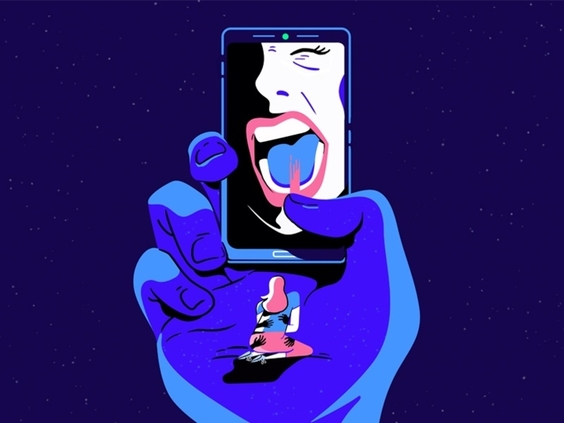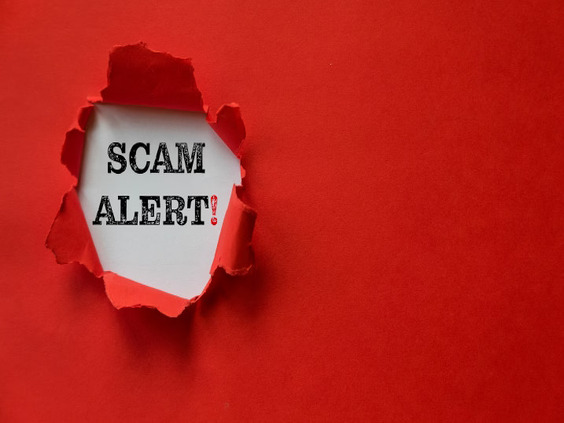

As law enforcement officers, you’re expected to stay alert, responsive, and digitally aware at all times. The constant pressure of being connected—through smartphones, surveillance tools, and communication apps—can slowly chip away at your mental resilience and emotional well-being.
The irony is clear: while the digital world is crucial to your role in keeping society safe, overexposure to screens and information can silently erode your focus, judgment, and health. This is where digital detox becomes not just relevant, but essential.
What is Digital Detox and Why Policemen Need It
A digital detox refers to intentionally disconnecting from digital devices like smartphones, computers, and social media to reduce stress and promote real-world connections.
In law enforcement, constant screen time isn’t limited to entertainment—it's your work life. CCTV footage, body cams, WhatsApp groups, digital reports, crime updates—your brain is constantly processing data.
Fact Check:
- A study by RescueTime found that people check their phones 58 times a day, and spend 3+ hours daily on smartphones. For policemen, this number is usually higher due to duty-related communication.
- WHO estimates that 1 in 5 working professionals face digital fatigue or screen-induced anxiety.
Recognizing Digital Overload Among Policemen
Here’s how digital overload shows up in your lives:
- Shorter attention spans: Constant device switching makes deep focus difficult.
- Fatigue and insomnia: Blue light from screens reduces melatonin levels, affecting sleep.
- Increased anxiety: Continuous exposure to violent or sensitive information elevates stress levels.
- Isolation from family: Off-duty hours spent online can strain relationships.
The Benefits of a Digital Detox for Policemen
Let’s be clear: this isn’t about throwing away your phone. It’s about mindful usage to improve job performance and personal well-being.
|
Benefit |
Impact on Policemen |
|
🧠 Mental clarity |
Better decision-making in high-pressure situations |
|
😴 Improved sleep |
Enhanced recovery and readiness |
|
👪 Stronger relationships |
Better work-life balance |
|
💪 Physical health |
Less eye strain, fewer headaches, more energy |
|
🔄 Emotional resilience |
Lower anxiety and stress levels |
How to Implement a Digital Detox in Uniform and at Home
Digital detox doesn’t require a sabbatical. Even small changes can make a big impact:
1. Assess Your Digital Usage
Track your screen time for a week. Are there moments where usage is habit, not necessity?
2. Set Screen Time Limits
Use phone features like Digital Wellbeing (Android) or Screen Time (iOS) to cap non-critical app use.
3. Create Digital-Free Zones
Designate specific zones at home or barracks (like the dining area or bedroom) as “no phone zones.”
4. Schedule ‘Silent Hours’
Pick time blocks (e.g., 9 PM to 7 AM) to disconnect unless it’s an emergency.
5. Replace Screen Time With Real Time
Take up hobbies like reading, gardening, or playing a sport with colleagues to wind down.
6. Practice Mindful Consumption
Avoid doom-scrolling or watching distressing videos off-duty. It continues triggering stress responses.
7. Stay Physically Active
Join your department’s fitness group or just go for a walk. Offline physical activity boosts serotonin.
For Senior Officers: Lead By Example
Officers in leadership roles must demonstrate the benefits of balance. When subordinates see their seniors practicing digital wellness, it sends a powerful message.
- Share tips about digital detox during briefings.
- Encourage offline bonding activities within the team.
- Support mental health breaks as a norm, not a weakness.
Why It Matters: Digital Detox in Crime Prevention
You might wonder—how does this help fight crime?
- Sharpened instincts: A rested mind spots red flags faster.
- Better interpersonal skills: Stronger engagement with victims, informants, and the public.
- Balanced reactions: Officers with high digital stress may overreact in tense moments.
Your clarity, empathy, and composure are weapons against crime too.
Legal Insight: The Risks of Digital Burnout
In a landmark 2022 report by the Bureau of Police Research and Development (BPR&D), 42% of surveyed officers admitted that digital fatigue impacted their effectiveness.
Burnout can lead to:
- Mishandling of digital evidence
- Incomplete cybercrime reporting
- Unintentional data leaks
- Errors in judgment during investigation or interrogation
Taking care of your digital well-being is taking care of your professional duty.
✅ Summary: Your Digital Detox Checklist
- Evaluate your screen habits
- Use phone features to limit distractions
- Allocate digital-free time daily
- Engage in physical and social offline activities
- Take breaks from disturbing digital content
- Encourage your team to join the detox movement
Final Thoughts
As guardians of law and order, your physical, emotional, and mental health is your frontline defense. In this era of 24x7 alerts and screens, a digital detox isn’t just self-care—it’s professional strength.
Encourage your teams to log off to recharge. It’s not about disconnection from duty, but a reconnection to self, purpose, and presence.
Being available 24/7 doesn’t make you stronger. Knowing when to unplug makes you smarter.
Cyber Hygiene Foundation
- CyberAwareness CyberSafety PersonalDataProtection SafeInternetForAll CyberHygieneForAll DigitalSecurityLaw ITSecuritySolutions
You May Also Like It
Understanding the Growing Threat of Loan Frauds Loan frauds have become
In your role as protectors of law and order, you
Leave A Comment
Don’t worry ! your e-mail address will not published.








0 Comments